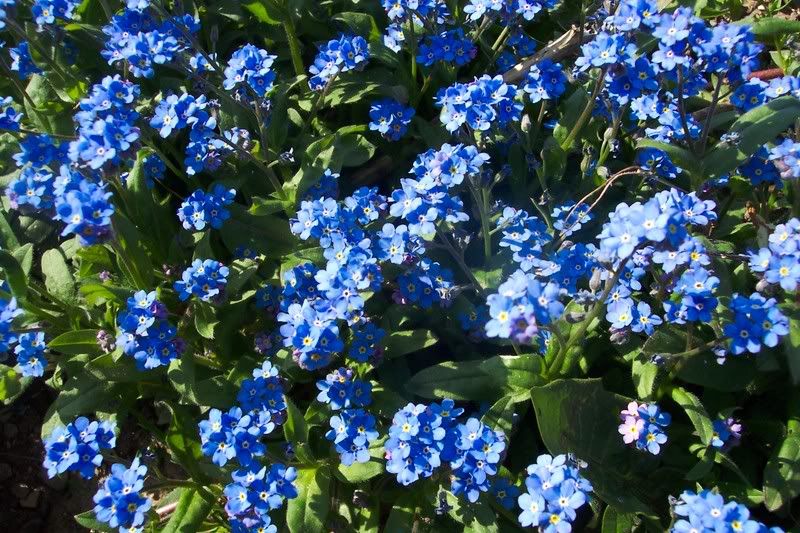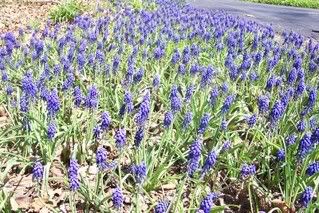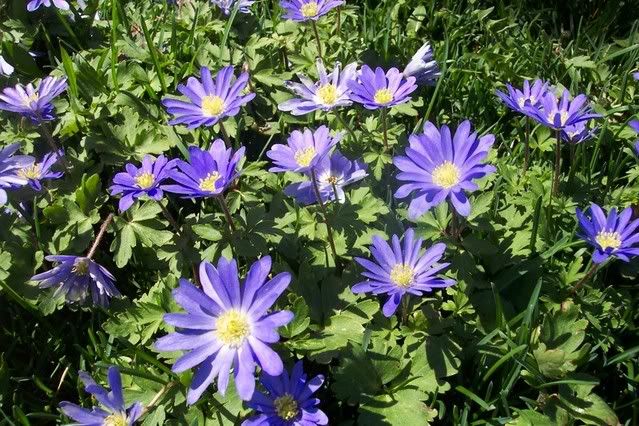Earlier this week, we planted our main onion crop.
We sowed the seed in the greenhouse back in January into flat trays. From this method you get what is known as “Onion transplants”, which are simply onion seedlings.
In this part of the country, onions can only be grown by transplants or “sets”. Onion sets are small, dried onion bulbs that are planted directly into the garden bed. Sets are readily found in garden centers.
Normally, we like to grow our own transplants because we can get the varieties we want.
This year we planted two beds of “White Spear” which is a green onion used for “veggie trays”.
Two beds of “Copra” were also planted. These are a yellow onion used for cooking. They are quite strong freshly sliced, but turn very sweet and flavorful when cooked. They also store exceptionally well.
For slicing onions on burgers and sandwhiches we planted a red onion called “Mars”. In years past we liked to grow “Burgermaster”, but seeds of this variety have become scarce.
Transplants are sold in all garden centers either in small trays or in semi-dry bundles of a couple of dozen or so. Here’s what ours look like:
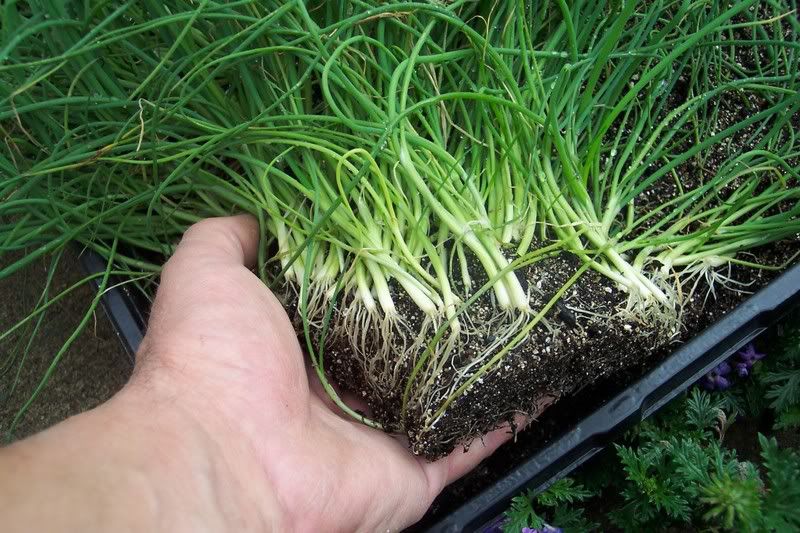
We usually dig shallow furrows using a “V” shaped hoe and line up the transplants at a spacing of 3/4″ to 1″ for our green onions and 1-1/2″ to 2″ apart for our regular onions.
The distance between rows in our beds is quite close…just far enough apart to comfortably get a hoe in between. You really can use whatever distance you like. I have seen rows as far apart as 24″ or more, because the gardener was using a rear-tine rototiller to cultivate between the rows.
Tuck your transplants into the furrow about to the depth they were originally growing, (where the white bottom begins to turn green). Firm the soil around them and give them a drink of water. They will begin growing right away.
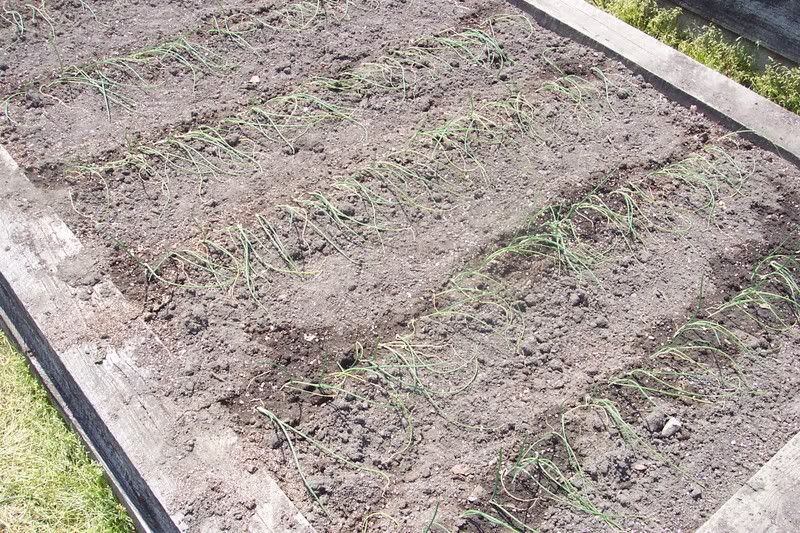
- Keep in mind that onions cannot compete against weeds at all.
- Onions need adequate water…no drought
- They need lots of leaves on top if they are to grow large bulbs, so fertilize with a high nitrogen fertilize early on in the season
In this photo you can see some of our onion beds. The large, full-grown onions in the forground are our winter onions. These are able to survive the winter so you can harvest a crop of green onions early in the spring.
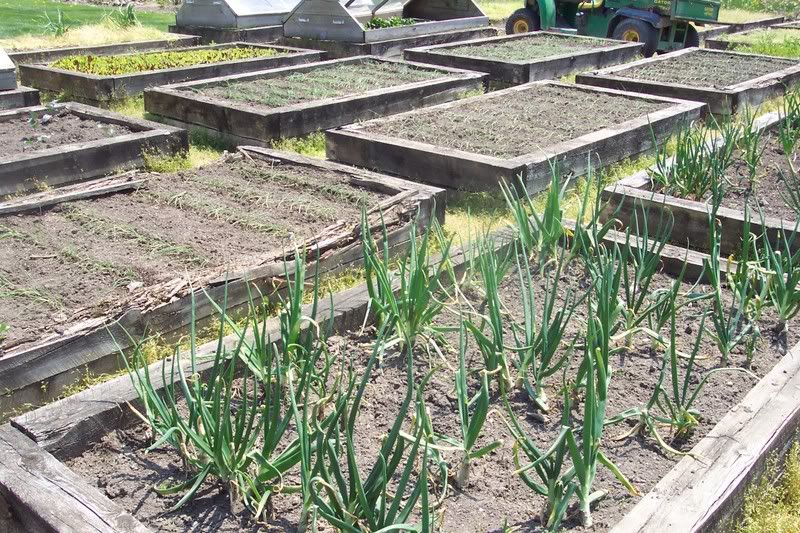
Later on in our kitchen, we’ll be shedding tears of joy and gladness for our onion crop.
Bob
